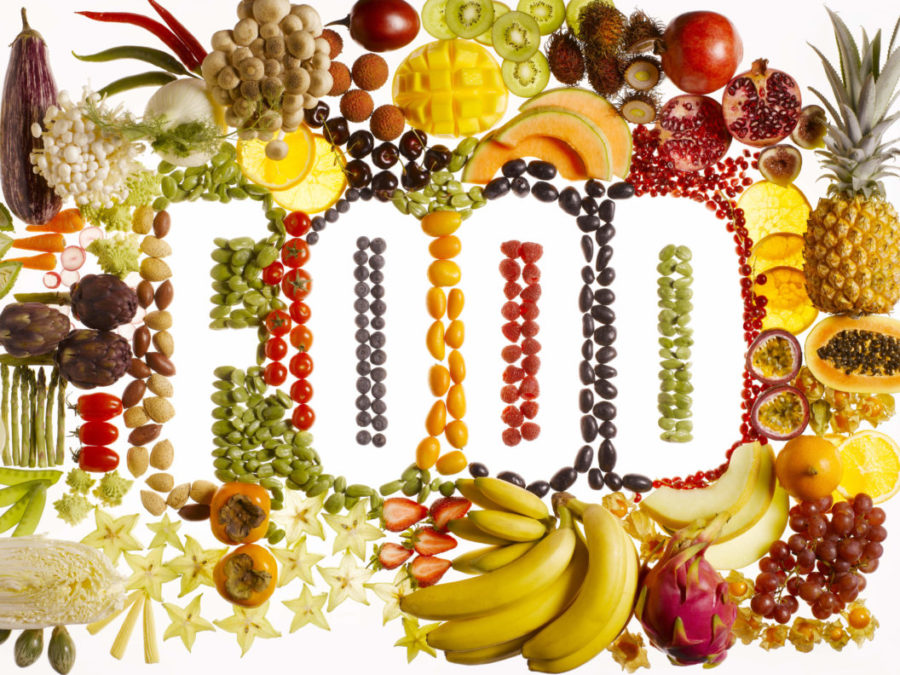Remember cliff notes? If you procrastinated on a book you were supposed to read for school, instead of reading the whole book you got the highlights with cliff notes. Here are my cliff notes from my Nutrition 2.0 book. I still recommend reading the whole thing for the details, but this is for those who like me like to get straight to the point. Below are my recommendations for the top 7 best and worst food choices for good health, and the next blog in the series will contain my recommendations for the top 7 supplements to consider, and lifestyle changes to make.
Top 7 Best and Worst Food Choices:
Best: Top 7 Foods for Good Health
- All vegetables!: Fresh or frozen. Organic is better than conventional but both are still good. Eat them raw, lightly cooked, or steamed, not processed or fried. Eat as much as you can daily. Some top veggies are kale, spinach, broccoli, cauliflower, cabbage, brussel sprouts, greens, bok choy, arugula, radish, turnips, and watercress. Herbs and spices can be put here as well with curry, ginger, garlic, and cinnamon being some of the best.
- Whole Fruits: Fresh or frozen. Dried is not as good. Not canned. Not juice. Eat as much as you want daily. Some of the best fruits are berries (blue, black, straw, and cranberries), cherries, citrus fruits (lemon, lime, and oranges), organic apples, tomatoes, and avocado.
- Tree nuts and seeds if you have no allergies to them: Ground up flax and Chia seeds are great to add to smoothies and salads. Eat 1-3 servings per days.
- True whole grains: Amaranth, barley, buckwheat, millet, steel cut oats (not instant oatmeal), brown and colored rice, quinoa, rye, sorghum, teff, triticale. Eat 1-3 servings per day.
- Legumes: Green beans, beans, peanuts, and fermented soy such as miso, natto, and tempeh. Sprouted is best. Canned is ok. Eat 1-3 servings
- Fresh caught/wild fish: Fish can be prepared by baking, steaming, sautéing, or grilling in addition to ceviche or sushi style. Eat 2-3 servings per week. Do not eat more than 3x per week due to the mercury and PCB toxicity of most waters and fish. Some of the best fish to eat are: wild Alaskan salmon, flounder, sole, and trout. Smaller scaly fish typically have less toxins so choose those and avoid the large fish like swordfish and marlin. Avoid farm raised fish.
- Grass-fed/Pasture raised poultry and meat: Meat is best cooked via broiling and baking. Grilling is not as good, but if you must do so, do it at lower temperatures and do not burn, char or blacken. Roasting, frying, and broiling are the worst for cooking meat. Eat on average 2 oz per day. Do not eat much more than that as even good meat is not good in excess.
- Drink: Spring water or filtered water that has a high mineral count and alkaline pH. Drink unsweetened herbal teas. Put fresh squeezed lemon or lime in water or put some fresh pieces of fruit to add flavor and a few nutrients.
Worst: Top 7 Foods to Avoid or Limit for Good Health
- Avoid Processed Meats including hot dogs, ham, bacon, sausages, corned beef, beef jerky as well as canned meat and meat-based preparations and sauces. Avoid all together or only eat very rarely.
- Avoid Foods with Trans Fatty Acids such as Crisco, margarine, and any processed food that has hydrogenated or partially hydrogenated oils as an ingredient.
- Limit Sugar (fructose) and Artificial Sweeteners. Avoid high fructose corn syrup found in most processed foods, sweetened drinks, soda, etc. Reduce added sugars. If you must do sweeteners, small amounts of honey, pure maple syrup would at least provide some nutrients as well as sweetness. Limit fruit juices as well but at least it has some vitamins. Artificial sweeteners (aspartame, sucralose or Splenda, saccharin, neotame, and acesulfame potassium) are probably worse than sugar. Not enough info on Stevia yet. Sugar alcohols (Xylitol, maltitol, sorbitol, and erythritol) are better for low calorie sweeteners and can be beneficial or teeth. If you need a desert, a small piece of Dark Chocolate >70% cocoa is both delicious and has health benefits.
- Avoid or Limit Ultra-processed Plant Foods. This would be any packaged food with added flavors, salt, sugars, fat, oils, preservatives, dyes, and other chemicals.
- Avoid or Limit Dairy. If you must have dairy, organic whole milk and yogurt products would be least detrimental.
- Avoid or Limit Conventional Meat Products.
- Avoid or Limit Cooking with Vegetable Oils. Safflower, sunflower, corn, and soy oils. Use cold-pressed extra virgin olive oils cold dishes and low-temperature cooking. Sesame seed oil and organic expeller-pressed canola oil is OK in moderation for cooking at medium temperatures. Only use coconut oil, palm oil, organic lard, butter or ghee for cooking at high temperatures.
- Avoid or Limit Alcohol. If you do drink alcohol red wine is preferred. For men no more than 2 drinks per day and no more than 1 drink for women Avoid or limit soda, sugar drinks, and drinks with artificial sweeteners, juice, and milk.
The Bottom Line
Above is great general advice on some the best food choices you can make to stay healthy. During this Holiday time it is especially important to watch your diet as with traveling and traditional holiday meals you will probably be going off your typical diet a little. Following these recommendations for the top 7 best and worst food choices regularly, will make it so you don’t affect your health too much and give you a path to get right back on the saddle. Next I will discuss the top 7 supplements, and life style changes to consider.
